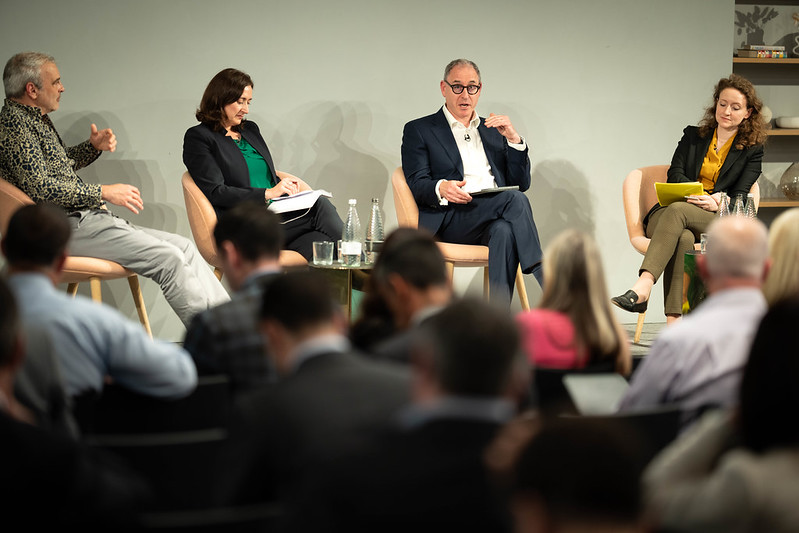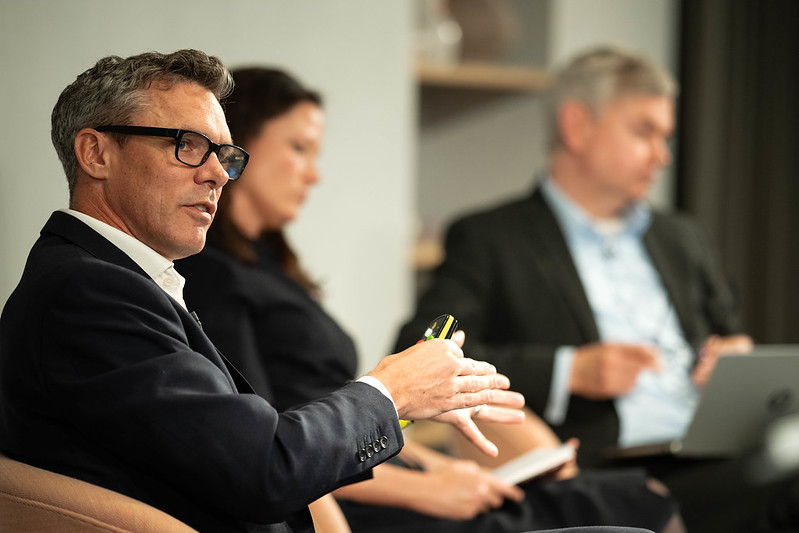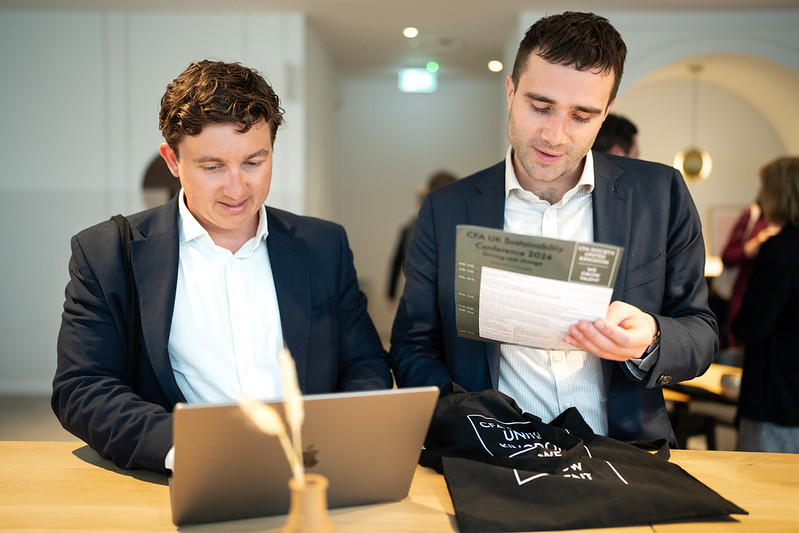Sustainability Conference 2024 - What We Learned

At CFA UK’s Sustainability Conference 2024, expert speakers and panellists from the investment profession showed us that those who are driving real change need to recognize and deal with complex decision-making. They need to have strong investment skills, deep knowledge of the science and economics of the transition to net zero and be able to engage with policy advocacy. Investors need a range of skills, knowledge and behaviours to contribute to the transition.
Here are five key issues that our speakers brought up:

Adaptation: Michele Giddens, Co-Founder and Co-CEO, Bridges explained how even when you look at the lifetime embodied carbon of a new build, “you would have been better to have retrofitted the old one”. Retrofitting is proof that building new isn’t always building better: adaptation will be key to meet the demands of the transition. It’s just as important to adapt your own skillset to meet the increasing demands that you’ll face from clients around climate, whatever investment role you have.
It’s why many of our speakers agreed that ESG screening is no longer enough. Now, investors must assess the impact of their decisions. Catherine Macaulay, CFA, Co-Head of Impact Management at Schroders talked about how they are using a triple lens assessment of sustainability, risk and return and impact. Now, more than ever, impact will be a crucial consideration for investors as the transition gathers pace.

Engagement: To drive real change, though, investors need to engage with decision-makers. In our panel of climate change leaders, ‘The view from the top’, our panellists shared expert insight in how to create successful engagement and take companies further towards net zero. Additionally, they questioned whether the right incentives and reporting standards were in place to convince asset owners to commit to change.
However, they also pushed for investors to raise their expectations of regulators and use their influence to "elevate the expectations of our governments” to drive change at the regulatory level. As the FCA’s Alicia Kedzierski said on the panel, “the call out to industry is: please come to us with solutions and ideas on what works. Please engage.” The investors who can engage successfully can reduce carbon from their portfolio and increase confidence in their career. That way, they have the knowledge to become decision-makers and take responsibility in their roles.

Decarbonisation: To create a just transition, decarbonising the global economy will be vital. However, that isn’t as simple as merely divesting emitters from your portfolio, and investors don’t have long to act. Dimitri Zenghelis, Special Adviser, The Wealth, Economy & Senior Visiting Fellow put it best in his closing keynote – “Net zero will happen.” Either because we'll deliver it, or a warmer climate will get us there, having wiped us out.
With climate change accelerating, Dimitri argued that investors need to embrace the challenges of the transition to realise its opportunities. And, if you learn how to manage these new risks, you’ll be best placed to benefit. Investors who gain the knowledge (Impact main page link) to navigate the transition will be the ones to generate sustainable returns, fill the skills gap and make a positive impact in their career.

Circularity: The way that the industry needs to view its investments is changing, too. Investors now need to consider the journey of each asset across its life cycle. Paul Lamacraft, Senior Investment Director, Schroders focused on how the net zero transition will create a more circular supply chain, “increasing the utilisation of the products we’re actually making”. Recycling, product life extensions and technology enablers will all play roles in boosting the lifespan of assets.
That means understanding circularity will be a crucial tool for future financial planning. While investors can find companies that understand this already, the real skill for investors is to take other companies towards this path.

Education: What stuck out most across all our sessions, though, was the need to address the skills gap in sustainable investing. Dimitri used his closing keynote to suggest that there is more than one transition that needs to happen. As well as net zero, he felt that we needed to transition to a knowledge-based economy rather than a resource-based one, and that “we should spend less time trying to forecast the future and more time trying to steer and design it”.
More than ever, then, education is crucial to deliver that knowledge – and CFA UK is leading the way. Our new Certificate in Impact Investing is the first qualification of its kind for investors looking to understand how to invest for positive outcomes, and positive returns, with intent. By helping investors upskill and understand the impact of every decision, they’ll have the skills to drive real change for our climate and their career.
Our conference speakers don’t wait for change to come – they deliver it. Grow your talent and make your impact by studying the Certificate in Impact Investing.